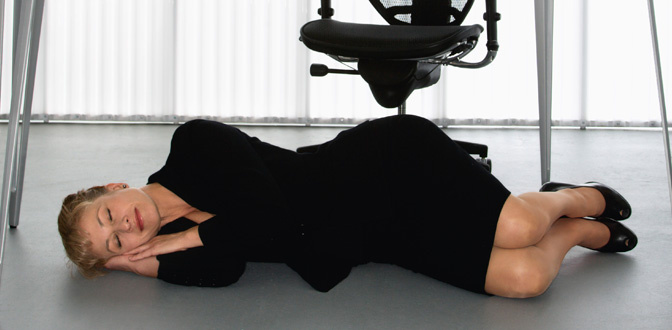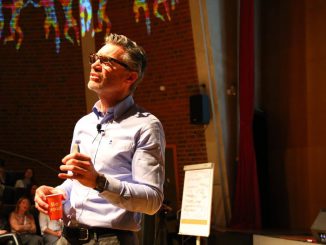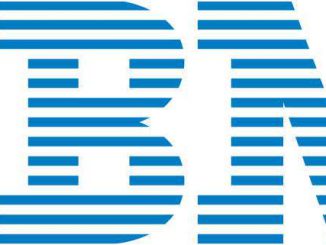
Post van Christopher Lindholst op entrepeneur.com, juli 2016. Vroeger een reden tot ontslag maar nu een bijdrage aan hogere effectiviteit: de powernap van 30 minuten op het werk bij o.a. Google, The Huffington Post, Salesforce.com, Uber, Zappos, Capital One Labs, Ben & Jerry’s en PwC.
Why Leaders Should Welcome Employees Napping on the Job
In the past, nodding off at your desk was considered not only embarrassing but also exceedingly bad form. Not to mention probable cause for reprimand, if not firing. But in today’s highly stressed, sleep-deprived, caffeine-dependent culture, the ability to take a guilt-free nap is more often considered a welcome, healthful workplace amenity. Even better, it can have significant positive effects on a company’s bottom line.
A rested employee is a productive employee. It makes sense for employers to allow today’s highly mobile worker to sneak in rest any time and any way they can — even if it means stealing a few minutes for snoozing on company time.
There are many reasons why smart employers are considering pro-napping policies for their workplaces. Here are a few:
They aren’t getting it at home.
According to National Sleep Foundation research, nearly half of all Americans today say that insufficient sleep at night affects their daily activities. Many of us aren’t getting the recommended seven to nine hours of rest most adults need to be happy, healthy and productive. A quick daytime nap (20 to 30 minutes should do the trick) can satisfactorily augment nighttime sleep — and therefore improve employee productivity.
It’s backed by science.
A huge quantity of scientific evidence supports napping as a useful tool to heighten employee performance. Study after study overwhelmingly suggests that a quick cat nap (even 10 minutes helps) can boost brain activity, enhance concentration, support creativity and even reduce the risk of disease.
It can bolster worker effectiveness.
Nap breaks can enhance productivity and efficiency in five ways.
First, naps boost alertness. Research conducted at the Department of Veterans Affairs Hospital in Northport, N.Y., concluded that a short sleep session can improve cognitive functioning and alertness, resulting in a 30 percent decline in attention failures from the baseline measure. This is especially valuable in environments focused on safety. There, workers can expect a 30 percent boost — a key to maintaining safe procedures — after a nap.
Second, naps increase productivity. […]
Voor de rest van het artikel: klik hier



